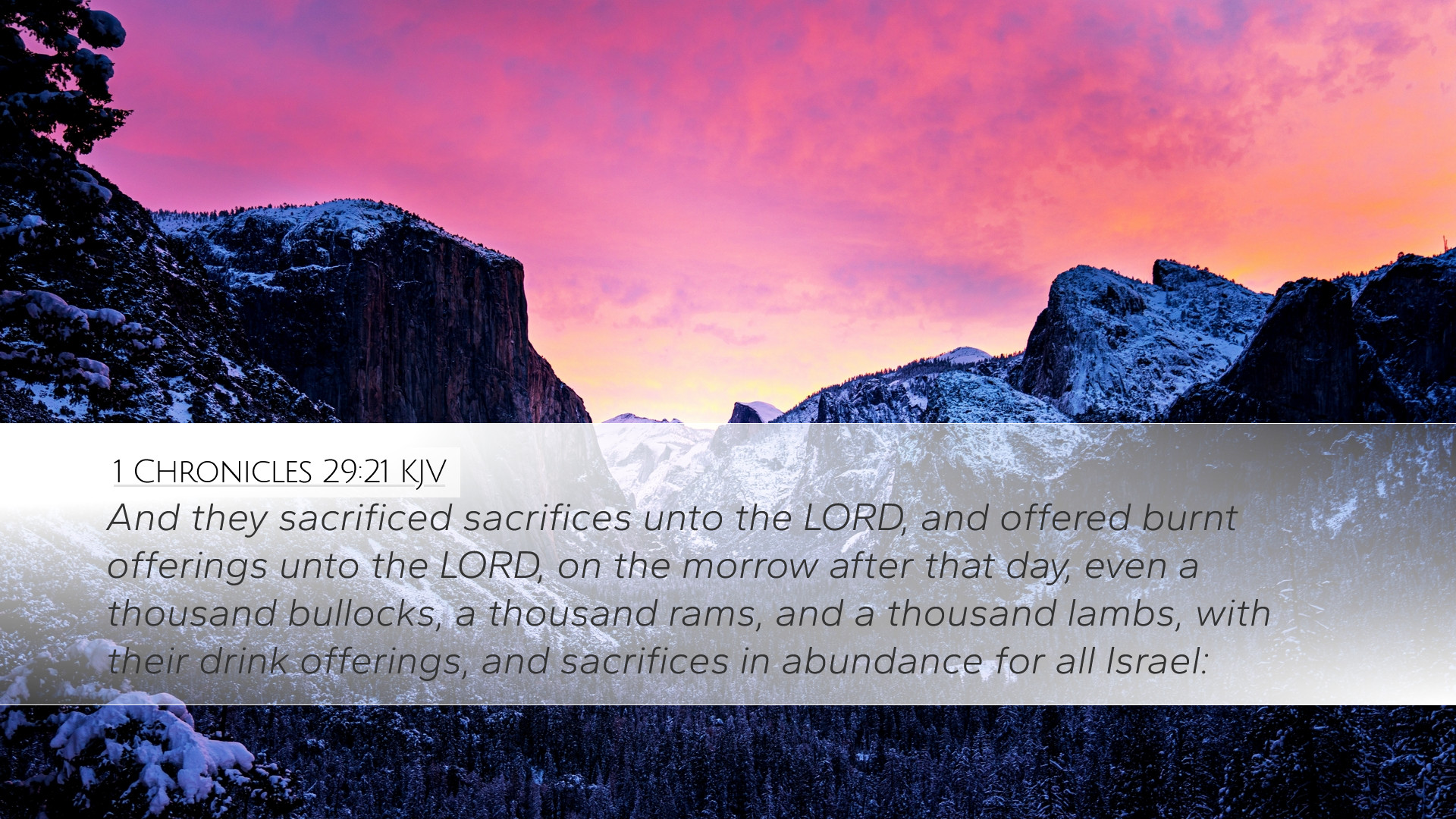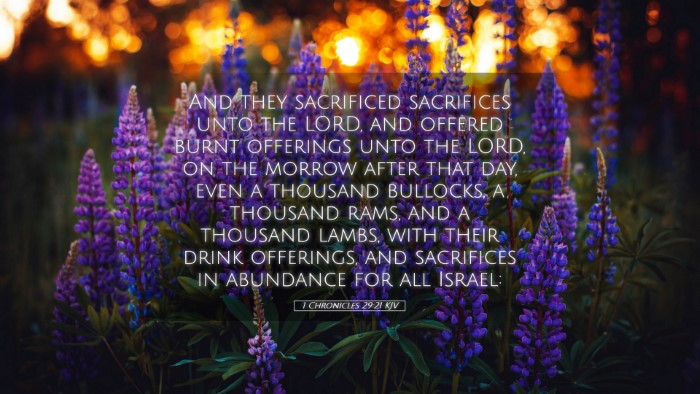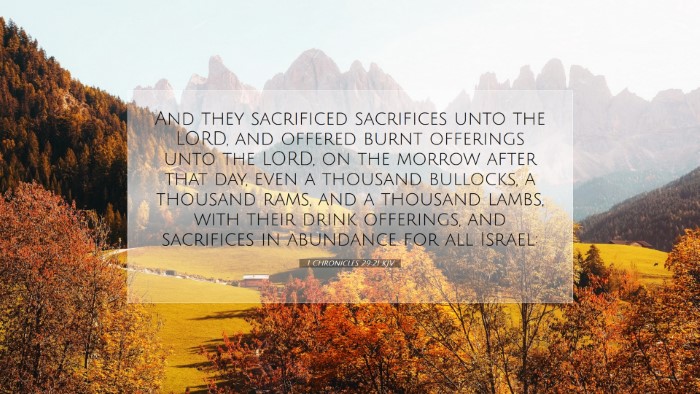Commentary on 1 Chronicles 29:21
1 Chronicles 29:21 states, "And they sacrificed sacrifices unto the LORD, and offered burnt offerings unto the LORD, on the morrow after that day, even a thousand bullocks, a thousand rams, and a thousand lambs, with their drink offerings, and sacrifices in abundance for all Israel." This verse highlights the communal worship and dedicated offerings made by the people of Israel in gratitude and service to God. In this commentary, we will explore insights derived from various public domain commentaries, including those by Matthew Henry, Albert Barnes, and Adam Clarke, to provide a meaningful discussion for pastors, students, theologians, and Bible scholars.
Historical Context
The context of this verse is significant as it occurs during the preparations for the building of the Temple in Jerusalem, under the reign of King David, prior to passing the kingship to Solomon. The extensive offerings signify not only the people's devotion but also their unity in worship.
Divine Acknowledgment
Matthew Henry emphasizes that the act of sacrificial offering is a symbol of the people's acknowledgment of God's sovereignty and grace. The magnitude of these offerings serves to reflect their recognition of God's gifts to them, and it demonstrates their collective submission and gratitude to His divine authority.
Albert Barnes further elaborates that such large offerings were not merely about quantity but represented the heart of worship. He argues that they embody the joyful expression of thanksgiving from a grateful people who understood the covenant relationship they had with God. The immense sacrifices stressed the seriousness and sincerity behind their worship.
Understanding Sacrifices
- Burnt Offerings: These offerings, completely consumed by fire, symbolize total dedication and surrender to God. Adam Clarke describes this as an indication of the people's desire to completely devote themselves to the service of the Lord.
- Drink Offerings: Accompanying the burnt offerings, the drink offerings suggest a further enhancement of the worship experience. They served to signify the joyful completion of the offering to God, underscoring sentiments of gratitude. Clarke also notes that these offerings would be presented with proper solemnity and reverence.
- Frequency and Abundance: The specific mention of the offerings being made the next day suggests a continuing commitment to worship and sacrifice. According to Henry, this demonstrates a joyous follow-up in their devotion and an assurance of their community's united will to uphold worship.
Theological Implications
This verse carries profound theological implications about worship and sacrifice. The acts depicted reveal a deeper understanding of the necessity for atonement and the importance of being in a right relationship with God.
Matthew Henry argues that these sacrifices represent a foreshadowing of the ultimate sacrifice to be made in Jesus Christ. It illustrates the continuity of God’s redemptive plan through the ages, culminating in the New Testament. Worship in the Old Testament was sacrificial, pointing towards a final act of grace in the New Testament.
Albert Barnes aligns with this perspective by observing that such offerings were integral to the covenant relationship and necessary for approaching God. They signify an understanding of sin and the need for atonement, a theme prevalent throughout the Scriptures. This concept resonates throughout the Bible, compelling believers to appreciate the gravity of their commitments to God.
Application for Today
For pastors and church leaders, this scripture presents an opportunity to reflect on the principles of worship and sacrifice in contemporary settings. How can modern congregations express their gratitude and devotion in ways that honor God? The emphasis on community offerings can guide church communities in coming together to worship and support God's work.
The collective aspect of the offerings serves as a reminder that worship is not solely an individual act but one that is enriched within the community. The application of these insights can manifest in various ways within the church, fostering unity, commitment, and a spirit of giving.
Conclusion
1 Chronicles 29:21 invites believers to engage deeply with the practices of worship that have been modeled throughout biblical history. The insights drawn from Matthew Henry, Albert Barnes, and Adam Clarke reinforce the idea that sacrifices must come from a place of gratitude, sincerity, and a desire for relationship with the divine. By understanding these dynamics, modern believers can create a rich and meaningful environment of worship that honors God and strengthens the community of faith.


